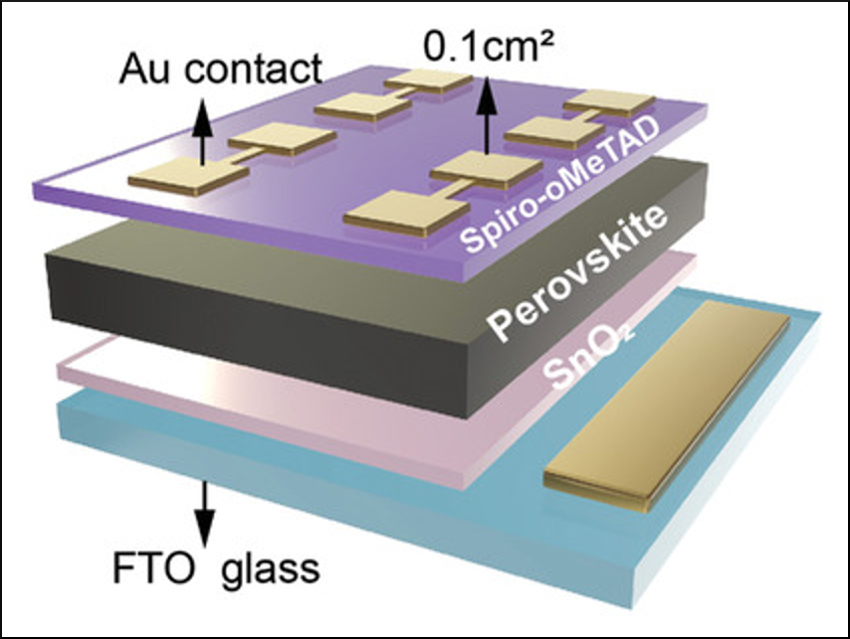Perovskite solar cells (PSCs) have excellent properties such as a high power conversion efficiency (PCE), low cost, and broad bandgap tunability. Fabricating high‐quality perovskite films is essential for the overall photovoltaic performance of PSCs. The so-called antisolvent approach is a mainstream method for preparing high‐quality perovskite films through tuning the nucleation and crystal growth. However, commonly used antisolvents such as chlorobenzene (CB) and toluene (TL) are toxic. Greener antisolvents with low toxicity, such as ethyl acetate (EA), have been used to solve this problem, but the low boiling point limits the performance of EA.
Tianshi Qin, Nanjing Tech University, China, Wei Huang, Northwestern Polytechnical University, Xi’an, China, and colleagues have used methyl benzoate (MB) as a green, non-halogenated, nontoxic, bifunctional (anti)solvent with a high boiling point for the preparation of high‐quality perovskite layers. The methyl benzoate is used as an antisolvent to rapidly generate crystal seeds in a perovskite spin‐coating step (pictured below on blue). It also acts as a digestive‐ripening solvent for the perovskite precursors during the thermal‐annealing stage (pictured below on red). There, it redissolves perovskite precursors and helps to recrystallize small crystals into larger crystallites. The MB prevents the loss of organic components (e.g., methylammonium iodide or MAI) and suppresses the formation of residual lead halide phases.
The team used this process to make perovskite layers for PSCs (architecture pictured above). The resulting devices achieved power conversion efficiencies up to 22.37 % with >1300 h stability. According to the researchers, using MB as a bifunctional (anti)solvent could significantly improve the reproducibility and stability in PSC fabrication.

- A Nontoxic Bifunctional (Anti)Solvent as Digestive‐Ripening Agent for High‐Performance Perovskite Solar Cells,
Yikai Yun, Fangfang Wang, Hongyan Huang, Yinyu Fang, Sizhou Liu, Wenchao Huang, Zhengchun Cheng, You Liu, Yezhou Cao, Mei Gao, Lin Zhu, Lin Wang, Tianshi Qin, Wei Huang,
Adv. Mater. 2020.
https://doi.org/10.1002/adma.201907123




